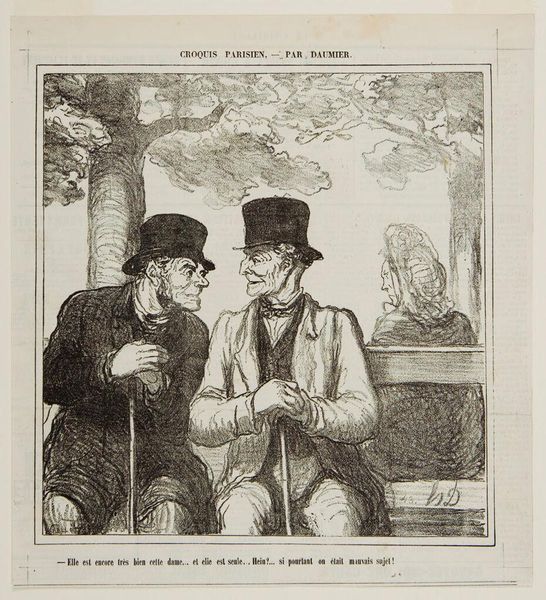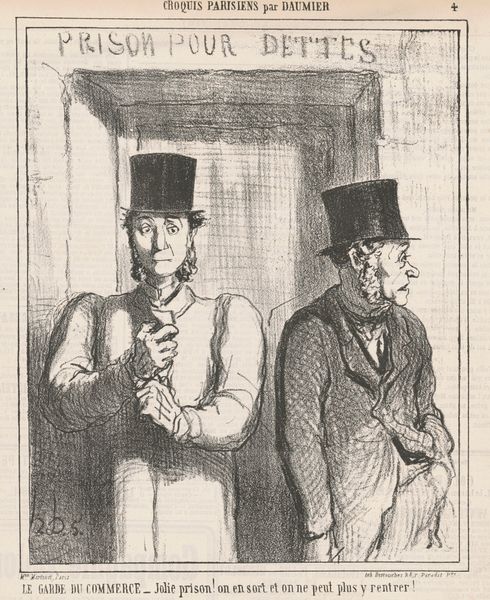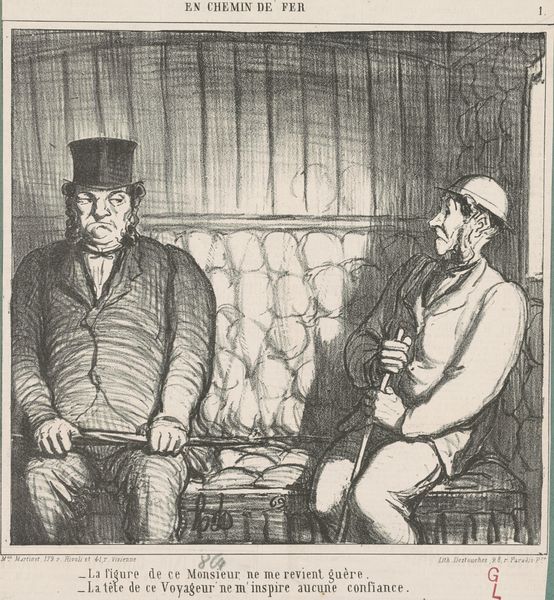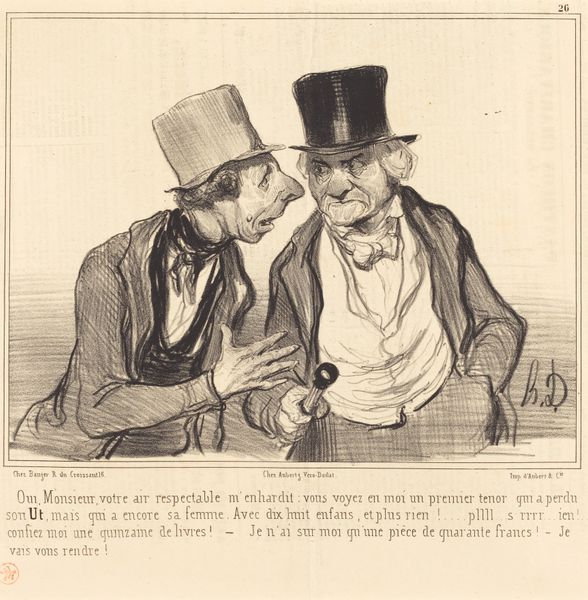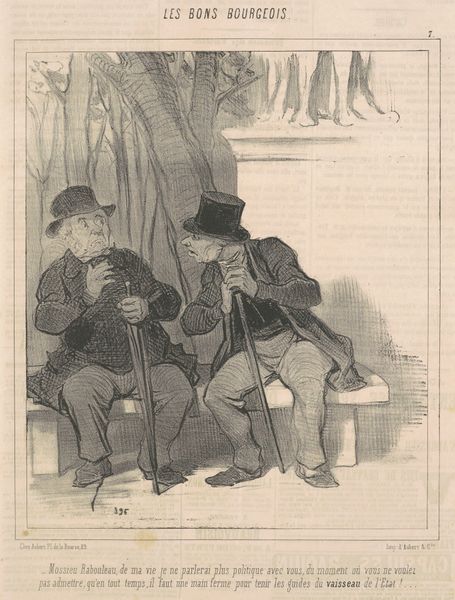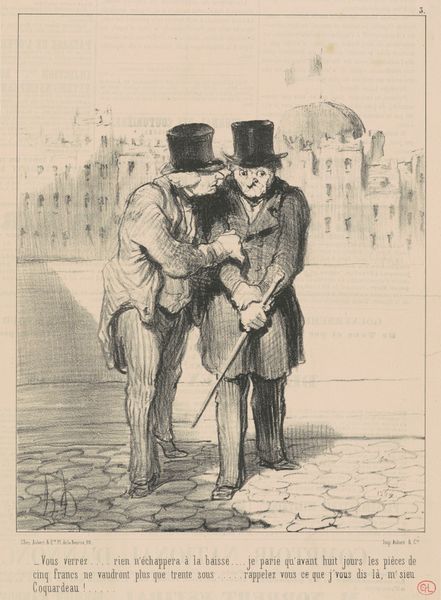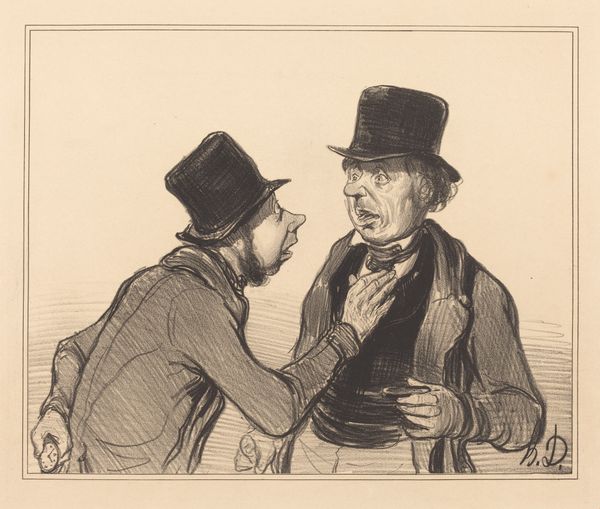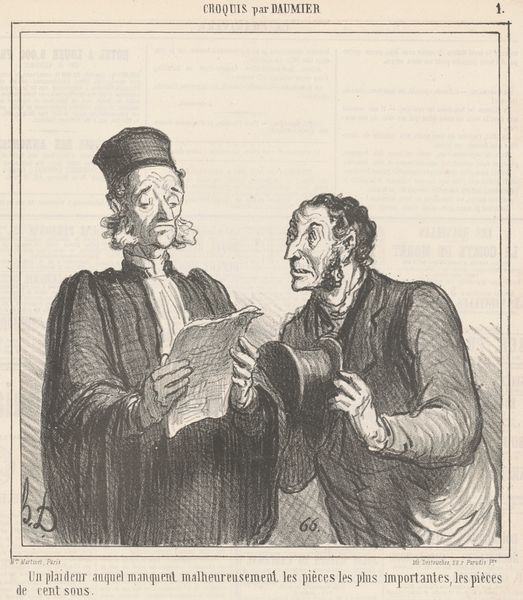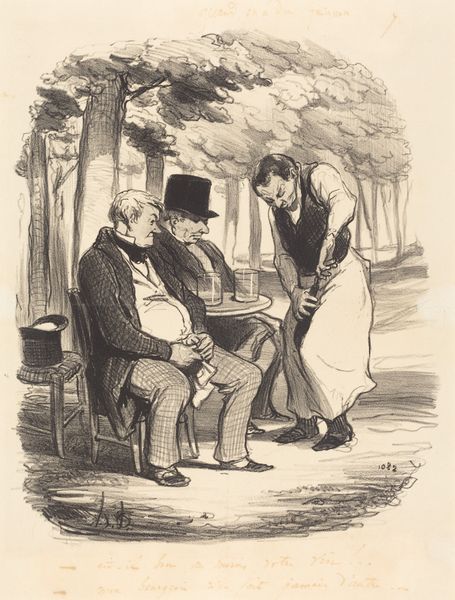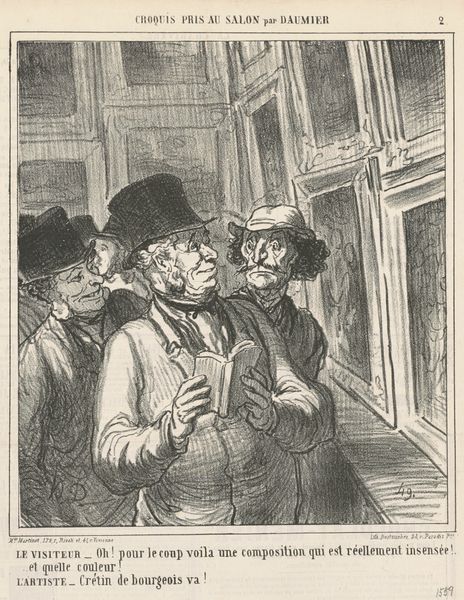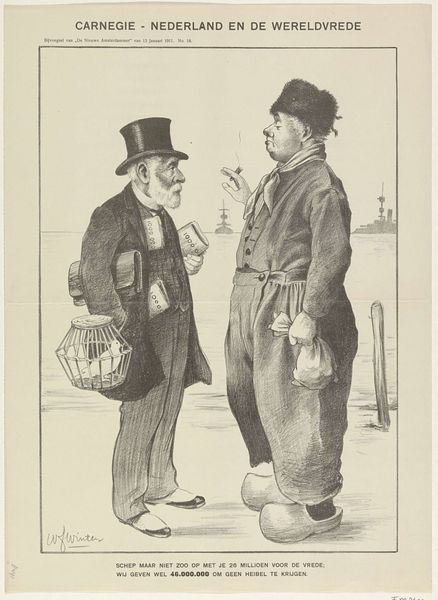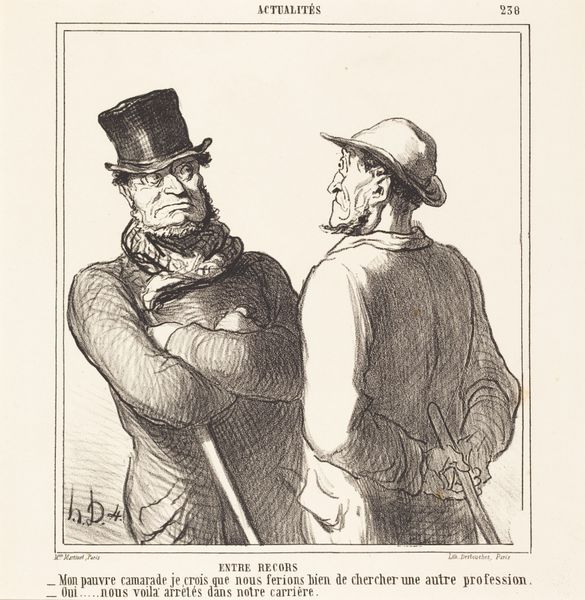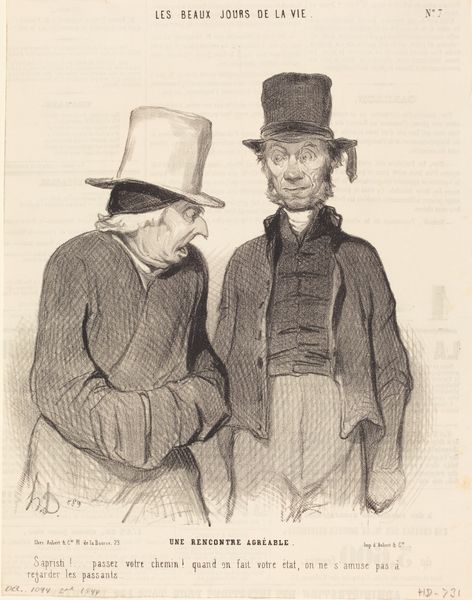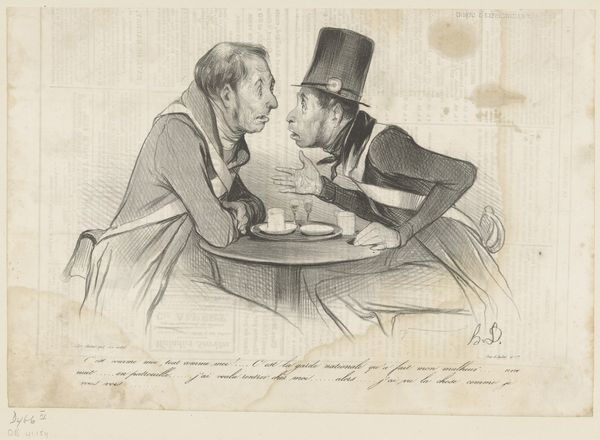
lithograph, print
#
lithograph
# print
#
caricature
#
figuration
#
romanticism
#
cityscape
#
genre-painting
Copyright: National Gallery of Art: CC0 1.0
Honoré Daumier created this lithograph, one of a series of satirical prints, in 19th-century France. Lithography is a printmaking process rooted in the properties of limestone and grease. Daumier drew his image on a polished slab of limestone with a greasy crayon, and the stone was then treated with chemicals so that ink would adhere only to the drawn lines. Finally, prints were pulled from the stone onto paper. It was a clever way to reproduce images in quantity. Daumier was able to create a detailed and tonal image that allowed him to capture the nuances of expression and social commentary. Here, we see the artist’s incisive observation of Parisian society. The lithographic process itself, with its reliance on skilled labor and industrial production, mirrors the social dynamics that Daumier critiques in his art. By focusing on the materials, the making, and the social context of prints like this, we see how art and craft intersect. The technical process is bound up with the artist's own take on labor and class.
Comments
No comments
Be the first to comment and join the conversation on the ultimate creative platform.
